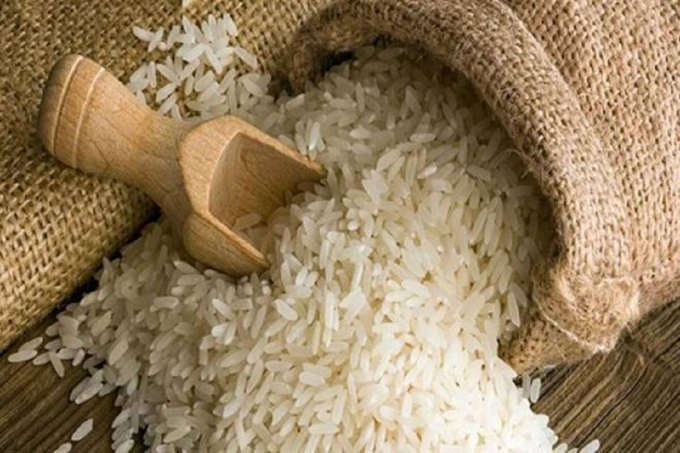May 31, 2025 | 04:10 GMT +7
May 31, 2025 | 04:10 GMT +7
Hotline: 0913.378.918
May 31, 2025 | 04:10 GMT +7
Hotline: 0913.378.918

Export rice prices of India fell to the lowest level in 5 months due to Covid-19. Photo: TL.
India's exploding Covid-19 infections will affect the production and export of the country's food products, according to the chief executive of Singapore-based global agricultural products trader Olam International.
Logistics in India activities are frozen. India is known as one of the world's major exporters of rice, and as an agricultural products trader with a supply chain spanning more than 60 countries from Asia to Africa and Europe to the Americas. However, the 2nd Covid wave had a sharp impact on this supply chain, from rice milling to loading to the port.
India lost market share due to lower production, and strong competition from Ecuador in both supply and prices. Among the top six destinations, exports declined to the United States of America, China, and European Union markets.
Banana exports from the Philippines were down almost 20% with Covid-19. The global pandemic has hit the production of bananas, causing length export time to transport bananas to markets and a higher freight rates. This is the reason why the profit decreased by 15%. In January, the Philippines' total turnover of banana export decreased by 51% compared to January 2020, equaling 186.4 thousand tons down.
Cambodia, a country that once had one of the lowest rates of coronavirus infections in the world, is now in the grip of a worrying virus surge. Phnom Penh and Takhmao were placed under lockdown on the middle of April amid a rise in Covid-19 cases.
Exports of milled rice of Cambodia in January-February were valued at US$ 64.53 million and amounted to 76,222 tonnes, according to a report from the Cambodia Rice Federation (CRF). This presented a decline of around 44.16% compared with the same period in 2020, triggered by a lack of containers and the high cost of shipping by sea.
Meanwhiles, Thailand durian traders fear for effects of Covid on exports to China. Thailand is now in the grips of a third Covid surge that began last month at an upscale entertainment venue in the capital. Durian growers are worried about what this could mean for Thailand’s durian exports to China.
One grower pointed to the social media scare surrounding Chilean cherries that sent prices of that fruit tumbling earlier this year, after a regional health authority in China issued a circular saying that tests on imported cherries had revealed coronavirus contamination.
In China, the strict border control of main export countries has severely restricted the export of agricultural products. Although the World Health Organization has proposed that after the outbreak, "there is no reason to take unnecessary measures to interfere in international travel and trade", many countries have nevertheless adopted restrictive measures.
Nepal suspended the import of fruits from China; Turkey and the Philippines temporarily prohibited the import of poultry products from China; Mongolia suspended the import of chicken and egg products from China and strengthened the quarantine supervision of imported goods from China.
India has also stepped up quarantine restriction on agricultural products and livestock products from China, requiring all relevant products are sent to the laboratory for testing; the United States, Russia, and other countries have also strengthened their supervision of China's agricultural products.
Due to the short shelf life and freshness of agricultural products, these strict regulatory measures have significantly increased the economic losses of exported products.
Besides, a series of restrictive measures in various countries have prolonged the transportation and customs clearance time for exported China's agricultural products, resulting in an increased risk of default on export contracts. As a result, agricultural products trade has declined significantly after the Covid-19 outbreak.
In Japan, the govermnet aims to expand agricultural exports from US$ 8.5 billion in 2020 to US$ 18.5 billion by 2025, and US$ 46.1 billion by 2030. The promotion of agricultural exports has become an important element of Japan’s economic growth strategy.
Japan is negotiating with other countries to remove or relax trade barriers and regulations on agricultural products. However, Japanese agricultural products lack price competitiveness in the global market due to high production costs. In the short term, Japan is negotiating with other countries to remove or relax trade barriers and regulations on agricultural products.
Translated by Ha Phuc

(VAN) Vikas Rambal has quietly built a $5 billion business empire in manufacturing, property and solar, and catapulted onto the Rich List.

(VAN) Available cropland now at less than five percent, according to latest geospatial assessment from FAO and UNOSAT.

(VAN) Alt Carbon has raised $12 million in a seed round as it plans to scale its carbon dioxide removal work in the South Asian nation.

(VAN) Attempts to bring down the price of the Japanese staple have had little effect amid a cost-of-living crisis.

(VAN) Fourth most important food crop in peril as Latin America and Caribbean suffer from slow-onset climate disaster.

(VAN) Shifting market dynamics and the noise around new legislation has propelled Trouw Nutrition’s research around early life nutrition in poultry. Today, it continues to be a key area of research.

(VAN) India is concerned about its food security and the livelihoods of its farmers if more US food imports are allowed.